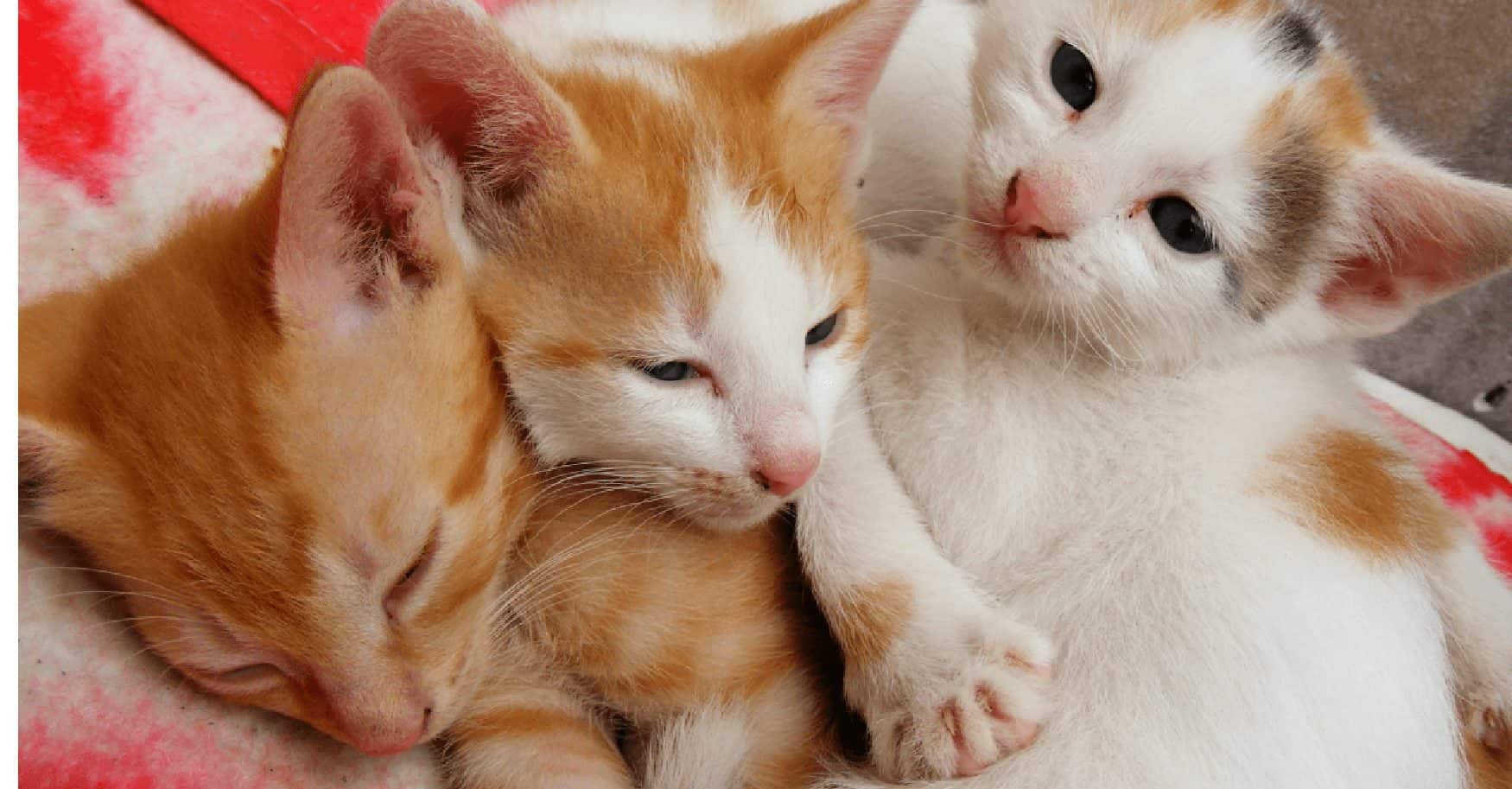Orphaned Kittens
As Vets, we are often asked to evaluate and treat young kittens that have been orphaned or abandoned. Kittens can be orphaned if the mother dies or is too ill to care for the litter, or as often happens abandoned newborn kittens are found as strays.
All newborn, tiny kittens are fragile and their needs have to be assessed quickly as there is no history at all about their age, vaccination state of the mother or her worming history. You assume if they are strays that there is no vaccinations, worming, proper nutrition which means that factors such as infectious diseases, parasites and general sanitation need to be considered.
Before handling the kittens we usually observe their response to the environment, as well as body condition, posture, ability to walk, and respiration rate. The vet will establish an estimated age for the kitten by using body weight and an inspection of the teeth.


Usually an average kitten has a birth weight of 80-120gms and they will put on 10-15gms a day, which means they should double their birth weight in the first two weeks of life. The first deciduous or baby teeth appear at around 3-4 weeks, these will be the incisors or front teeth and the canines, while the premolars are usually visible at 5-6 weeks. A full tummy is normal in a well fed kitten but an enlarged abdomen in an ill kitten can mean a worm burden, this is usually accompanied by a dry non-shiny coat.
The vet has neonate milk formula for kittens that can be made up to the right temperature, about 35-38 degrees C, and teats that are suitable for the kittens to suckle. It is important to remember that young kittens cannot eliminate urine and faeces voluntarily. We use a cotton ball with a little oil to stimulate the bottom the way their Mother does by licking their bottom. Kittens need to be fed every 2-4 hours during the first weeks of life. Once they reach 3-4 weeks then soft kitten food can introduced. It is a huge commitment to foster orphan kittens, puppies and wildlife and that is why after these neonates have been assessed they are sent off to carers that have the experience and time to care for them.
We often get baby possums and birds brought in by caring people, the same system applies to these babies, where they are assessed for injuries, treated and then fostered out to bird carers and possum carers. When dropping off sick or injured wildlife it is important to provide the location or address where they were found so that the carer can relocate them to the same area. These wonderful carers make all the difference to these babies living or not and we thank them for their care and dedication.
.
